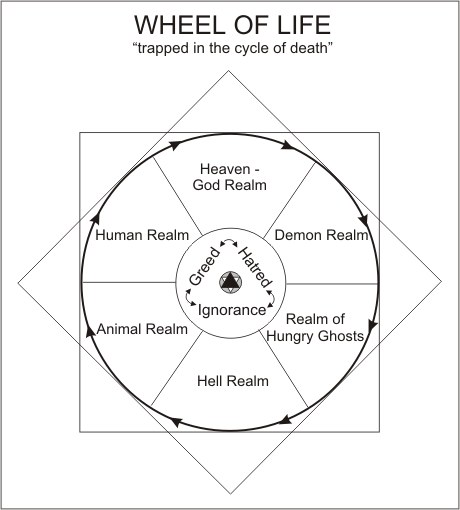No, I'm not talking about your previous lives. I'm talking about your present.
Okay, I think we misunderstand each other, or maybe we're not referring to the same thing at all.
Let me try to explain what I'm saying.
You said:
Buddhism is about living in the present, living in NOW.
And I'm trying to associate that with the first noble truth: the irrefutable fact that life is suffering, with the third and fourth noble truth which are:
The third truth is that suffering can be overcome and happiness can be attained; that true happiness and contentment are possible. lf we give up useless craving and learn to live each day at a time (not dwelling in the past or the imagined future) then we can become happy and free. We then have more time and energy to help others. This is Nirvana.
The fourth truth is that the Noble 8-fold Path is the path which leads to the end of suffering.
A Basic Buddhism Guide: 5 Minute Introduction
Now, according to Buddha, reaching Nibbana (nirvana) - the third and fourth noble truths - takes a long gradual process.
This is how he described it:
The Buddha made clear many times that Awakening does not occur like a bolt out of the blue to the untrained and unprepared mind. Rather, it culminates a long journey of many stages:[1]
Just as the ocean has a gradual shelf, a gradual slope, a gradual inclination, with a sudden drop-off only after a long stretch, in the same way this Doctrine and Discipline (dhamma-vinaya) has a gradual training, a gradual performance, a gradual progression, with a penetration to gnosis only after a long stretch.
The Buddha's teachings are infused with this notion of gradual development. His method of "gradual instruction" (anupubbi-katha), which appears in various forms in countless suttas, always follows the same arc: he guides newcomers from first principles through progressively more advanced teachings, all the way to the fulfillment of the Four Noble Truths and the full realization of nibbana:
Here is the Buddha's six-stage gradual training in more detail:
Dhamma
Did you see the six-stage gradual training in details?
----------------------------
So when you told me that you're at the level wherein it'd take hundreds of reincarnation to reach nirvana (the third and the fourth noble truths).....I wonder how you manage the present?
So, yes I'm talking about your present life.
And you said,
Buddhism is about living the present. Yes, you'll live the present - along with the pain and sufferings attached to that present.
Each present life you live, you'll go through the same painful process of living life....and how can it be any better for you if you have not reached that third and fourth noble truths?
It doesn't help either that you don't remember your previous life! It'd feel you're always on square one!
How do you know you're not in that same level in your previous life?
And on top of that, there's no guarantee at all that you'll ever reach that state where there wouldn't be sufferings anymore.
Do you see what I mean?

